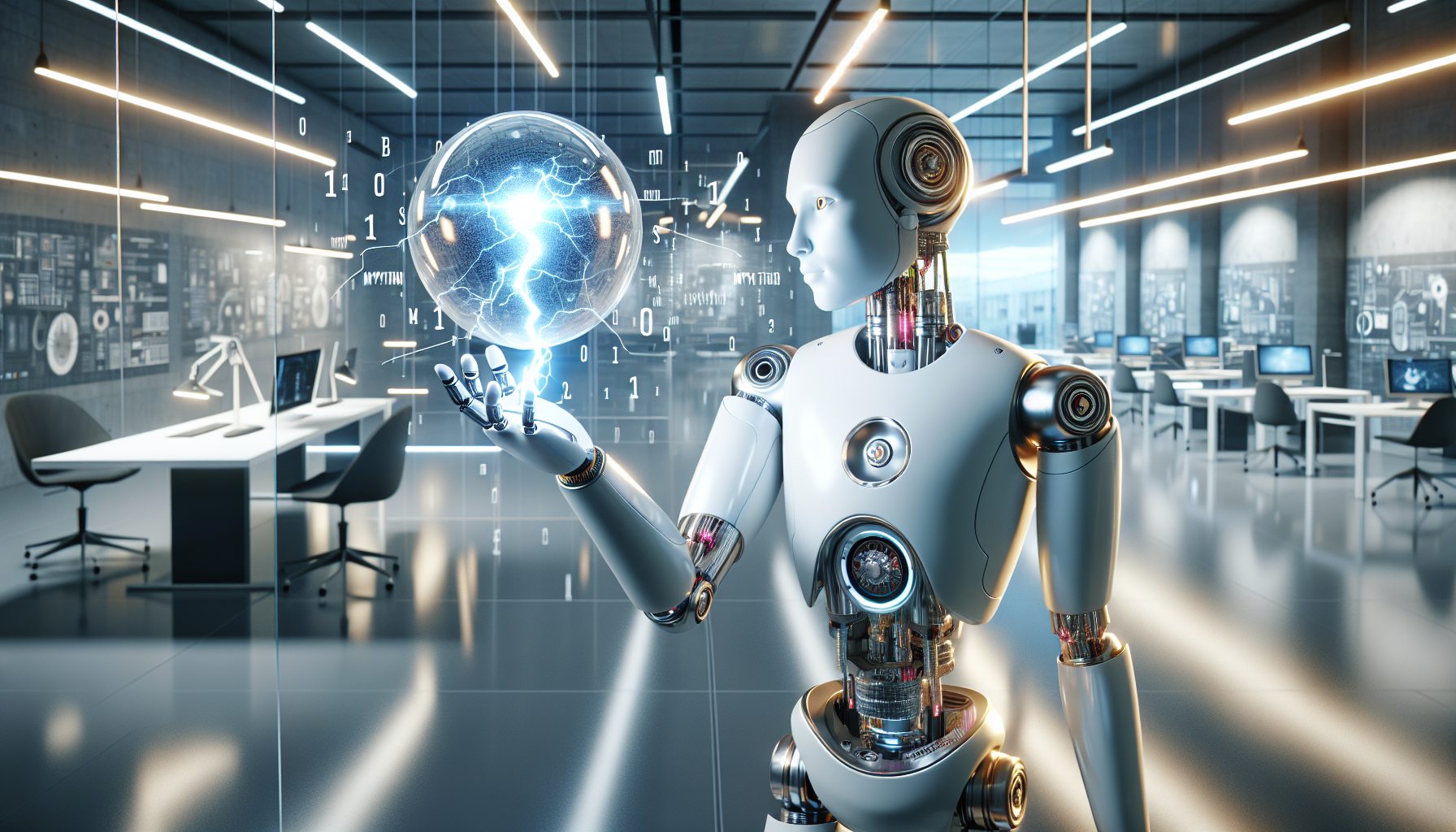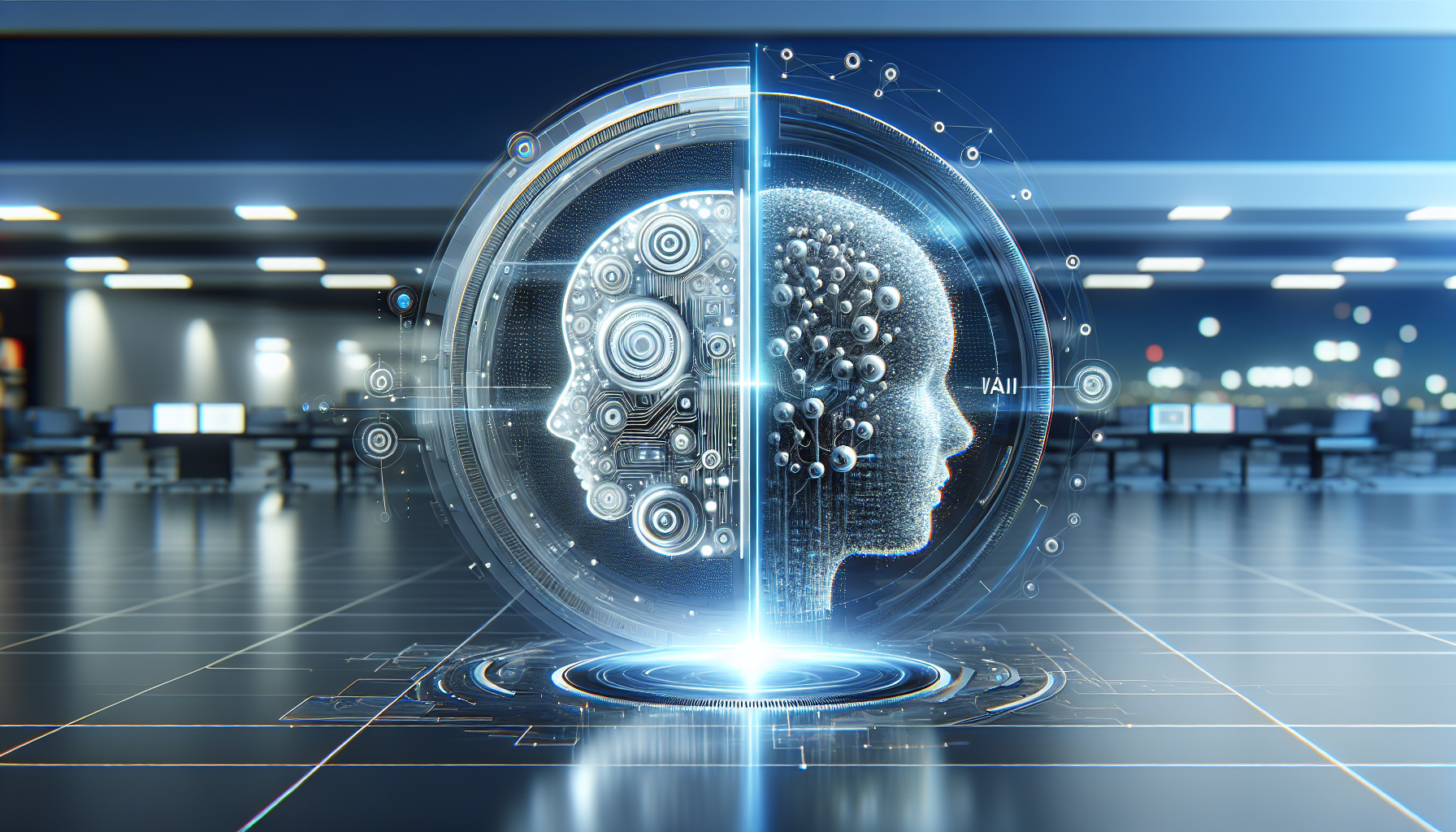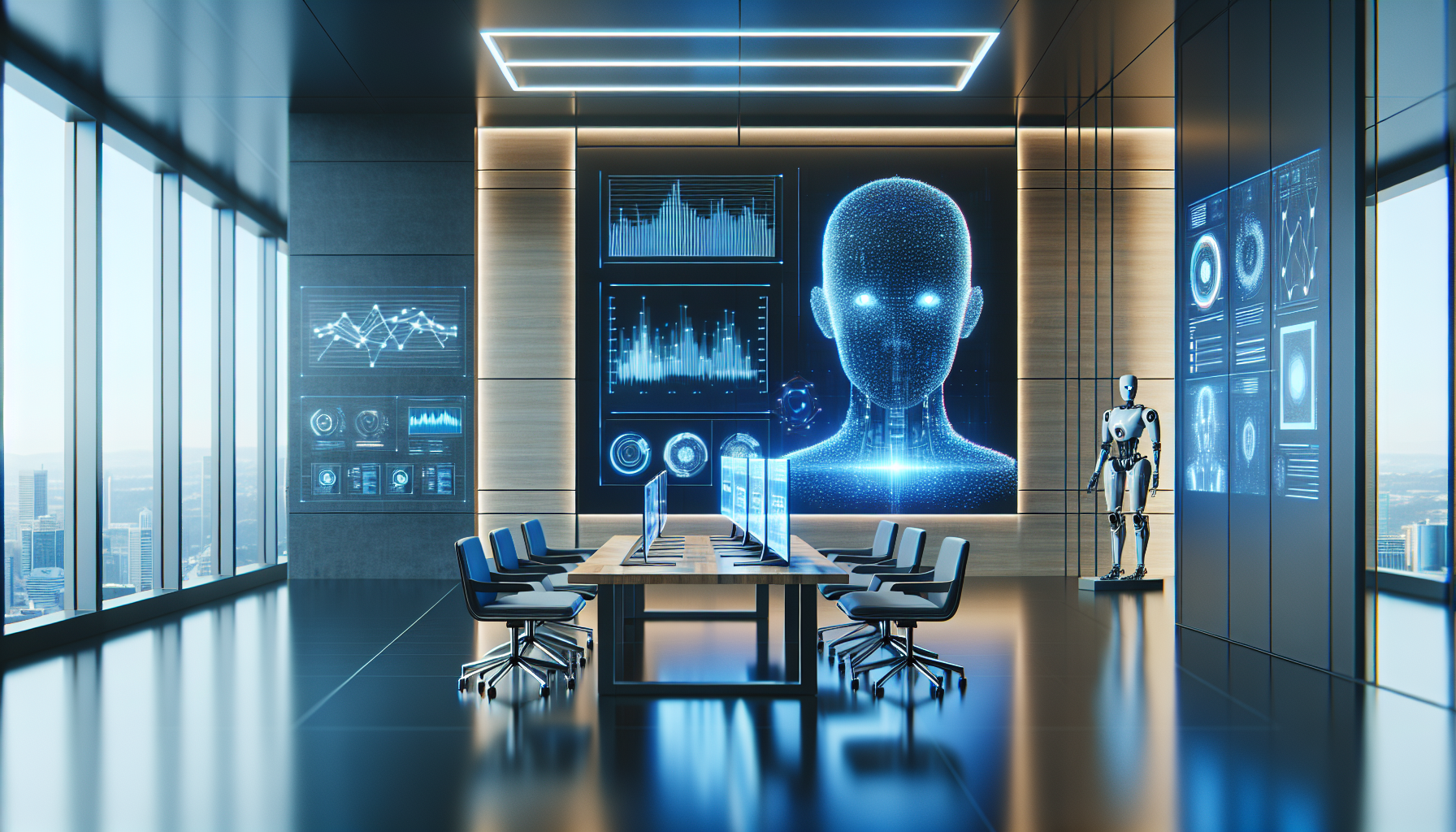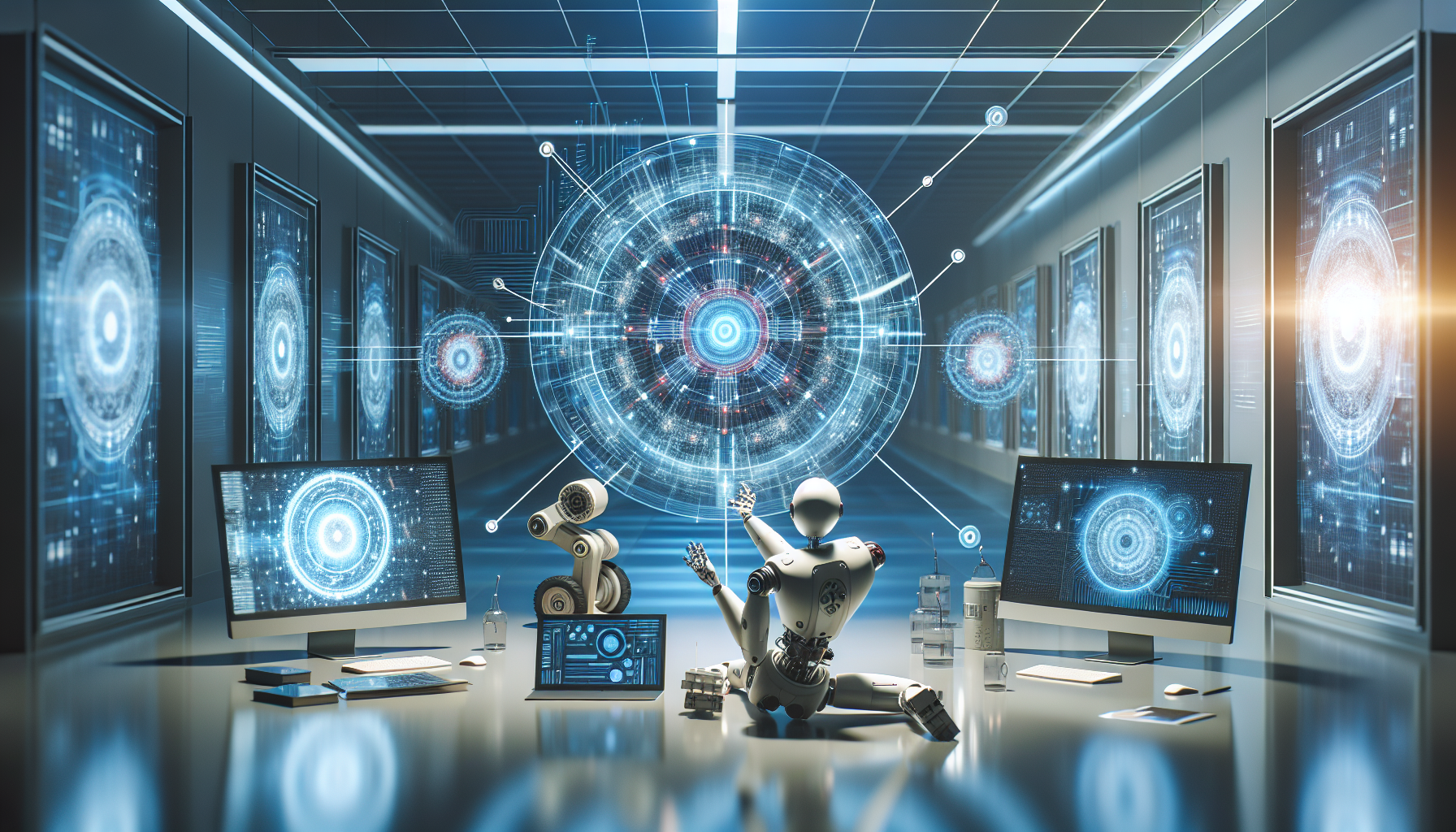
AI and the Future of Work: Are Robots Really Out for Your Job, or Just Your Lunch Break?
July 27, 2025
So, you're sitting at your desk, sipping your coffee, and wondering if a robot will soon waltz in to take over your job. But fear not, dear reader! The rumor that AI is here to gobble up all our jobs faster than a hungry intern at a free pizza lunch is greatly exaggerated. Let's dive into the myths surrounding AI and the future of work, sprinkling in some reality checks and a dash of humor.
First, let's address the elephant in the room—or should we say the robot in the break room? There's a widespread belief that AI is poised to replace every human worker, resulting in mass unemployment and a future where we all become professional Netflix binge-watchers. However, the truth is that AI, in most cases, is more interested in making our jobs easier, not obsolete. Think of it as a helpful coworker who never steals your stapler and has an encyclopedic knowledge of everything.
One of the biggest myths is that AI will lead to job losses across all sectors. While it's true that certain repetitive tasks are being automated, this shift is opening doors to new opportunities. For example, robots might take over the monotonous task of assembling widgets, but someone still needs to design, program, and maintain these mechanical marvels. So, if you're worried about losing your job to AI, consider brushing up on your robot whispering skills.
Now, let's talk about the idea that AI is this all-knowing entity that will do your job better than you ever could. Sure, AI can process vast amounts of data faster than you can say "supercalifragilisticexpialidocious," but it lacks the one thing that makes humans truly irreplaceable: creativity. Robots can follow instructions and learn patterns, but they won't be writing the next Pulitzer-winning novel or painting a masterpiece anytime soon. Unless, of course, you count an abstract splatter of spilled coffee as art, in which case, AI might have a shot.
Then there's the myth that AI will destroy all jobs, leaving us wandering around aimlessly like extras in a post-apocalyptic movie. In reality, AI is more likely to transform jobs rather than eliminate them. Picture this: instead of spending hours on mind-numbing data entry, you could be analyzing the results and making strategic decisions. AI can handle the grunt work, leaving you with the fun stuff—like taking credit when things go well and blaming the computer when they don't.
Another amusing misconception is that AI will make us all obsolete, leading to a dystopian society where humans serve no purpose. However, history has shown that technological advancements tend to create more jobs than they destroy. Remember when the internet was going to replace retail stores? It turns out it just gave us more ways to shop and more delivery drivers to keep up with our online shopping habits.
It's worth noting that AI is also creating jobs we never even dreamed of. Who would have thought that "drone operator" would become a legitimate career path? Or that we'd need specialists to ensure AI systems are ethical and fair? These new roles are emerging at a dizzying pace, proving that while some jobs may change or disappear, others will rise to take their place.
So, should you be worried about AI taking over your job? Only if your job involves tasks that can be done by a toaster. For the rest of us, AI is more of a sidekick than a threat. It can handle the mundane, leaving us free to focus on what we do best: being human.
In the end, the future of work with AI is less about robots taking over and more about collaboration. Imagine a world where AI takes care of the tedious tasks, leaving us with more time for creativity, innovation, and maybe even a longer lunch break. As we continue to integrate AI into our lives, perhaps the real question isn't whether robots will replace us, but how we can make the most of this powerful tool. Can we leverage AI not just to enhance productivity, but to create a future where work is more fulfilling and less of a chore? Now that's something worth pondering over your next coffee break.


